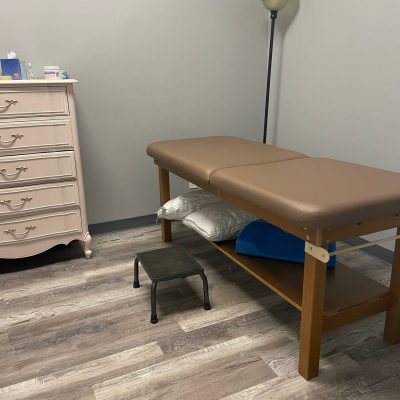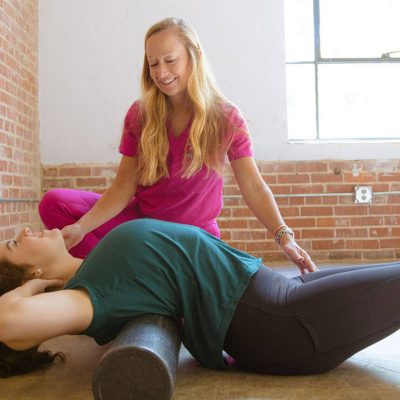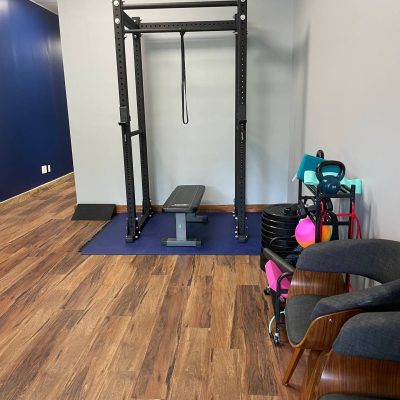As a Pelvic Floor and Orthopedic Physical Therapist, I spend a lot of time teaching my clients how to breathe! Proper breathing is a great way to directly stretch not only the pelvic floor but also the low back. When you are breathing incorrectly, it can create an abnormal pressure response on the pelvic floor and contribute to urinary leakage, prolapse, and abdominal hernias.
When you inhale, does your stomach cave in? Does you chest rise? Do your shoulders lift to your ears? That means you aren’t getting any breath down into your pelvis, creating tighter pelvic floor muscles.
Are you clenching your abdominal muscles throughout the day, or sucking in your stomach to flatten it? By cinching your middle you hold too much tension in your middle Transverse Abdominals. If you can control your Transverse Abs moreso in your lower abdomen, you’re less likely to increase belly pooching and pressure downward on your pelvic floor.
There are different schools of thought on the best way to engage your core for stability.
Many people inhale before they lift and actually hold that inhale breath. The problem with this method is when you put that much pressure down on your pelvic floor it puts the pelvic floor under a lot of stress. Whether you just gave birth or have incontinence issues, this can cause you to leak. Second, if you have pelvic floor issues like prolapse, taking a deep expanded bracing approach to lifting can make the prolapse worse.
You do want to inhale and expand down first, but before lifting, exhale, engage your pelvic floor up and in along with your lower abdominal muscles and then lift.
Place a finger inside your sit bone and inhale. You should feel muscles gently coming into your fingers. If you don’t, your pelvic floor muscles are likely tight along with an uncoordinated breathing pattern. Also, a tight muscle can also be weak and unable to handle the job of normal daily tasks.
How Should I Be Breathing?
When you inhale, you want to feel the sides of your ribs, back, belly, and pelvic floor all expanding in unison. Your chest should rise minimally.
In the exhale, your lungs deflate and your pelvic floor should move up naturally (to resting position). Your core comes inward on its own. A forced exhale you will facilitate greater core engagement, which is needed with heavy lifting.
Do you find yourself breathing incorrectly, leaking urine, or have symptoms of prolapse/ pressure? Contact us for greater help coordinating your breathing, pelvic floor, and abdominal muscles!
Magic City Physical Therapy
Hoover, AL
Instagram @magiccitypt
Phone (205)202-0874







